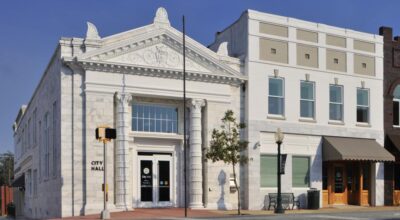Decatur County reacts to threat of suit by city
Published 9:44 pm Tuesday, December 10, 2013
The Decatur County Board of Commissioners responded Tuesday morning to the City of Bainbridge’s pending legal action against the county. Last week, the Bainbridge City Council decided to consider legal action against the county to stop collecting property taxes from Bainbridge residents for services not received and what they are claiming to be double taxation on their residents.
On Nov. 26, the county received a comprehensive Open Records Request from the law firm of Smith Welch Webb & White on behalf of the city. During the Bainbridge City Council meeting on Dec. 3, Commission Chairman Russell Smith and County Administrator Gary Breedlove offered copies of county budgets and audits to the city in response to the Open Records Request.
Buddy Welch, the attorney representing Bainbridge, wrote a letter Dec. 4 to Brown Moseley, Decatur County attorney, indicating the documents provided to the city the night before do not comply with the request and the city expected the county to fully comply with the open records law.
Also in the letter, Welch said, “It is our belief that the documentation we have requested will show that Decatur County has been taxing for services that it does not provide to the City of Bainbridge and other cities of Decatur County. It is our position that this taxation is illegal and unauthorized by law.”
Welch used a recent court case, City of Auburn, Georgia versus Gwinnett County, as his basis for the argument for that the county is illegally taxing municipal residents for services not provided. In the letter, he indicated that the case is a “road map as to how the law requires county government be operated.”
Services such as law enforcement, fire protection, highways and streets, maintenance, and planning/zoning have been areas cited by the city as areas of double taxation of city residents.
During Tuesday’s Board of Commissioner’s meeting, County Attorney Brown Moseley briefed the commissioners on his thoughts on the city’s potential legal action and what impact of the Gwinnett County case would have in Decatur County.
“To compare Decatur County and Gwinnett County is like comparing grapes and watermelons, they are entirely different,” Moseley said. “Whatever is in that order only applies to Gwinnett County, it doesn’t apply to us, it doesn’t apply to Miller County, it doesn’t apply to Grady County,” said Moseley.
Moseley said that the court order in the Gwinnett County case should not be considered a legal precedent. Only cases that have been heard by an Appeals Court or the Supreme Court could be considered as a precedent.
“It is disappointing to me that the city has some questions about our service delivery and have to route their concerns through a lawyer in McDonough instead of walking two blocks down here and say ‘let’s talk about this,’” Moseley said.
But prior correspondence between the city and county proves the city spoke with the county about the topic more than one year ago.
In a letter Aug. 14, 2012 to Breedlove, Bainbridge city manager Chris Hobby asked to discuss the service delivery strategy between the city and the county. In the letter Hobby referenced the case in Gwinnett County and the basis for how such agreements are structured.
“Our analysis shows that the county is currently collecting $2.3 million in ad valorem taxes from city residents for services they do not receive,” Hobby wrote. “I look forward to discussing this with you and hope we can come to an agreement on Special Service Districts that doesn’t involve the courts as the final arbiter.”
In response, Breedlove wrote in an email dated August 15, “I’m not sure how the Gwinnett County situation applies in rural Georgia, but will take a look.”
“I hope this (legal action) is just contemplated and we can sit down at the table with city officials, address their concerns, and come to an agreement without sending money somewhere else,” said Russell Smith, chairman of the commission.





